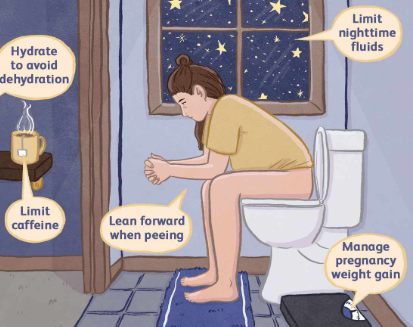“Unveiling the Link: Fibromyalgia and Frequent Urination Explained”
Understanding Fibromyalgia and Its Symptoms
Fibromyalgia is a chronic condition characterized by widespread musculoskeletal pain, fatigue, sleep disturbances, and cognitive difficulties. While these are the hallmark symptoms, many individuals with fibromyalgia also report a range of other issues, including urinary problems.
The Connection Between Fibromyalgia and Frequent Urination
Research indicates a significant association between fibromyalgia and urinary symptoms. A study published in PubMed found that 93% of individuals with fibromyalgia experienced symptoms of overactive bladder, highlighting the prevalence of this issue among patients. These symptoms often include a sudden urge to urinate, frequent urination, and, in some cases, incontinence.
Possible Causes of Increased Urination in Fibromyalgia Patients
Several factors may contribute to the increased frequency of urination observed in fibromyalgia patients:
- Overactive Bladder (OAB): OAB is characterized by a sudden urge to urinate, often leading to frequent urination. The high prevalence of OAB symptoms in fibromyalgia patients suggests a potential link between the two conditions.
- Interstitial Cystitis (IC): Also known as painful bladder syndrome, IC involves chronic bladder pressure and pain, leading to frequent urination. Studies have shown a significant overlap in symptoms between fibromyalgia and IC, indicating a possible connection.
- Central Sensitization: Fibromyalgia is associated with central sensitization, a condition where the central nervous system becomes hypersensitive to stimuli. This heightened sensitivity may extend to the bladder, resulting in increased urinary urgency and frequency.
Impact on Quality of Life
Frequent urination can significantly affect the quality of life for individuals with fibromyalgia. It may lead to sleep disturbances due to nocturia (waking up at night to urinate), increased anxiety about being away from restroom facilities, and social embarrassment. Addressing these symptoms is crucial for improving overall well-being.
Management Strategies for Urinary Symptoms in Fibromyalgia
Managing urinary symptoms in fibromyalgia involves a multifaceted approach:
- Medical Evaluation: Consulting a healthcare provider is essential to rule out other potential causes of frequent urination and to develop an appropriate treatment plan.
- Medications: Depending on the diagnosis, medications such as anticholinergics may be prescribed to manage overactive bladder symptoms.
- Lifestyle Modifications: Implementing bladder training techniques, dietary changes (e.g., reducing caffeine and alcohol intake), and pelvic floor exercises can help alleviate symptoms.
- Stress Management: Since stress can exacerbate both fibromyalgia and urinary symptoms, incorporating stress-reduction techniques like mindfulness and relaxation exercises may be beneficial.
Conclusion
Frequent urination is a common but often overlooked symptom in individuals with fibromyalgia. Understanding the connection between fibromyalgia and urinary issues is vital for comprehensive patient care. Through proper medical evaluation and a combination of treatment strategies, individuals can manage these symptoms effectively, leading to an improved quality of life.
Frequently Asked Questions
1. Is frequent urination a common symptom of fibromyalgia?
Yes, studies have shown that a significant number of individuals with fibromyalgia experience symptoms of overactive bladder, including frequent urination.
2. What causes increased urination in fibromyalgia patients?
Potential causes include overactive bladder, interstitial cystitis, and central sensitization associated with fibromyalgia.
3. How can I manage urinary symptoms related to fibromyalgia?
Management strategies include medical evaluation, medications, lifestyle modifications, and stress management techniques.
4. Should I see a specialist for urinary issues if I have fibromyalgia?
Consulting a healthcare provider, such as a urologist or rheumatologist, can help determine the underlying cause and appropriate treatment for urinary symptoms.
5. Can lifestyle changes help reduce frequent urination?
Yes, bladder training, dietary adjustments, pelvic floor exercises, and stress reduction can all contribute to symptom improvement.
6. Is there a cure for urinary symptoms in fibromyalgia?
While there may not be a definitive cure, effective management strategies can significantly reduce symptoms and improve quality of life.



